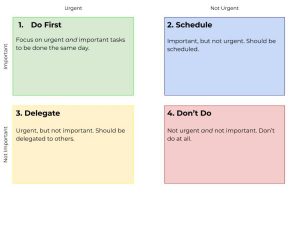The last fifteen years have been a time of remarkable change for the supply chain manager. The manufacturing and distribution industry has become increasingly dependent on technology to control and manage its most important supply chain functions. The rise of China, India, and other emerging markets as supply chain leaders has revealed those countries as more than just a source of cheap labor, but also as a source of demand as their income levels rise along with growth in their manufacturing sector.
Technology has also transformed the daily grind for many supply chain managers. More business processes are now delivered over the Internet and increasingly via mobile devices. Robotics, big data, and the Internet of Things (IoT) are moving to the fore, promising to deliver value on a platform made possible by integration of data from sources across the business and supply chain.
All of these factors are contributing to rapid change in the roles and responsibilities of supply chain managers. If you’re a supply chain manager who wants to be successful in the future, or if you’re just getting started in the field, here are five skills you need to succeed.
Top Tips for Supply Chain Managers
- Think Big Picture
There are two major forces for change at work in today’s supply chain, and supply chain managers must understand them. The first is globalization. Today’s supply chain is global, so supply chain managers must either know or be able to learn how to operate in a global environment. Language and cultural skills, knowledge of international labor and sourcing issues, and a good understanding of logistics and import/export rules will be key in the global supply chain environment.
The second force for change is technology. Whether it’s big data and IoT mobile device technology and robotics are changing the face of the supply chain; supply chain managers must stay at the forefront of these new technologies if they are to be successful. The supply chain manager’s job is to consistently find ways to leverage technology to provide better service to customers while managing supply and demand cycles. That means that if your business is working within a global supply chain today, you could be working within a mobile, robot-enabled, and global supply chain tomorrow.
- Focus on Delivering Value
Supply chain management isn’t just about getting products where they need to be on time and at the lowest possible cost. It’s about providing value to the customer and to the partners within the supply chain—exceeding their expectations. It’s also about delivering bottom line results through increasing margins. That means pushing down costs, gaining better control of inventory cycles as well as planning procurement, production, and demand so that warehouse costs can be minimized while still delivering on customer requirements.
- Know How to Leverage Data
Driving results is great as long as you’re driving them in the right direction. That’s why it’s important to leverage data in the supply chain. Supply chain managers must benchmark and measure key performance indicators in your supply chain, to better understand where your business is today, where it has been, and where it needs to go. Business processes are increasingly delivered online. As more business metrics can be measured with ERP, warehouse management, and logistics management software—and through connections to IoT,—more data becomes available to help supply chain leaders understand where they are succeeding and where improvements are needed. Analytics and predictive modeling can even help you determine your future business strategy.
- Be a Changemaker
The supply chain environment is transforming rapidly due to technology; supply chain managers will be expected to understand how technology can improve processes and to have the skills to deliver on organizational initiatives. This means supply chain managers are expected to possess very high level “soft skills,” the ability to manage people, projects, and processes while having excellent communication skills and the ability to think strategically.
- Understand Your Business Holistically
Gone are the days when a supply chain manager could focus exclusively on a limited area of expertise. To really deliver results in a rapidly changing environment, supply chain managers need to think about the problems and forces affecting the business and industry. You need to understand how changes in the supply chain are affecting different functions within your organization and discover creative solutions to problems in the supply chain.
How a Supply Chain Manager Can Excel with Technology
Obviously, technology is a critical area of expertise for supply chain managers so that they can deliver value to the business, customers, and supply chain partners. What areas of technology must supply chain managers focus on in order to excel in their roles?
As we see it, there are three ways supply chain managers can excel with technology
- Understand Application Integration: Application integration is the key to leveraging data and understanding the business holistically. Without it, the data your business depends on to deliver value simply isn’t available. But, application integration can be expensive as well. So a supply chain manager needs to understand what data their business needs to be successful and how to get that data into the hands of the right people at a cost that won’t break that bank.
- Deliver on the promise of mobile: If you’re looking at the technology that will be most critical to the supply chain over the next ten years, mobile devices just might be it. Mobile devices are helping companies track assets and shipments, execute transactions and processes with B2B mobile commerce and ordering, and collaborate better with internal and external partners. Mobile devices are not just transformative but are also transforming, as mobile devices in the supply chain move beyond tablets and smartphones to wearable devices, headsets, and more.
- Internet of Things (IoT) and big data: As more and more devices and products are connected to the Internet of Things, the amount of data that supply chain managers will be able to access is set to explode. IoT will allow supply chain managers to connect people, processes, data, and things across a web of devices and sensors. It will allow data to be collected across the entire product life cycle, delivering the capability to improve products based on user data, reduce loss, lower costs, and provide monitoring and oversight as products move throughout the supply chain.
The job of a supply chain manager can be an exciting one, and it’s one that is transforming every day with the help of technology.
What advice do you have for a supply chain manager? How can technology help one excel in their role? We’d love to hear what you think in the comments.
Business & Finance Articles on Business 2 Community(67)
Report Post






